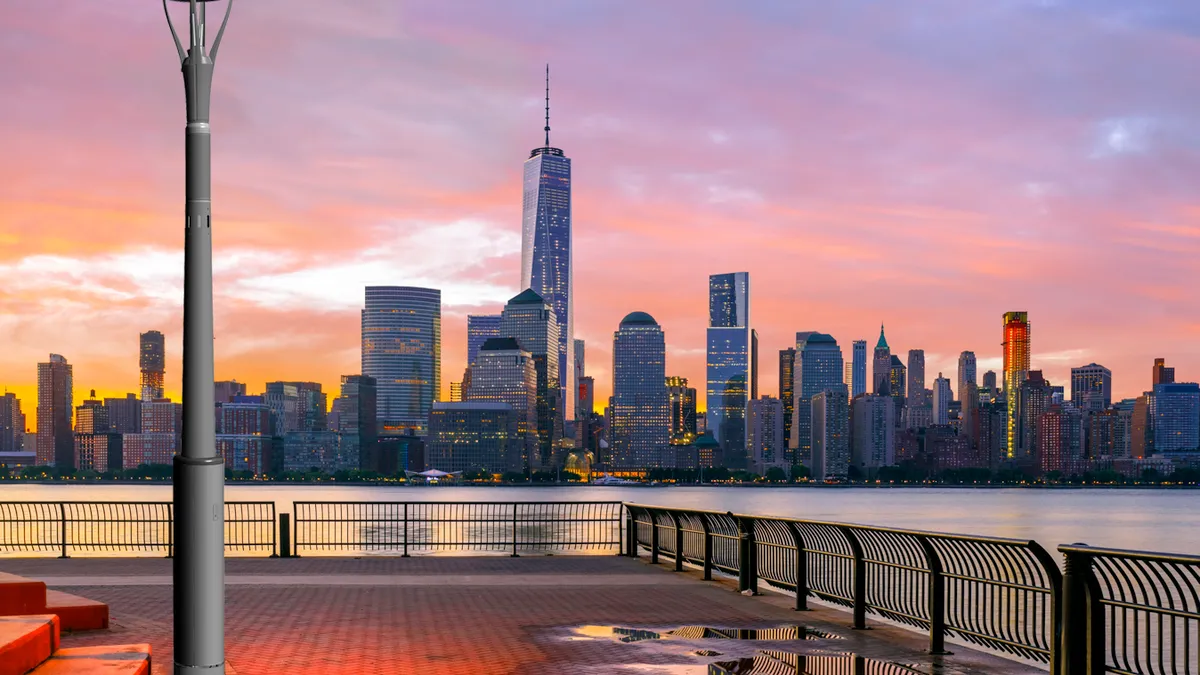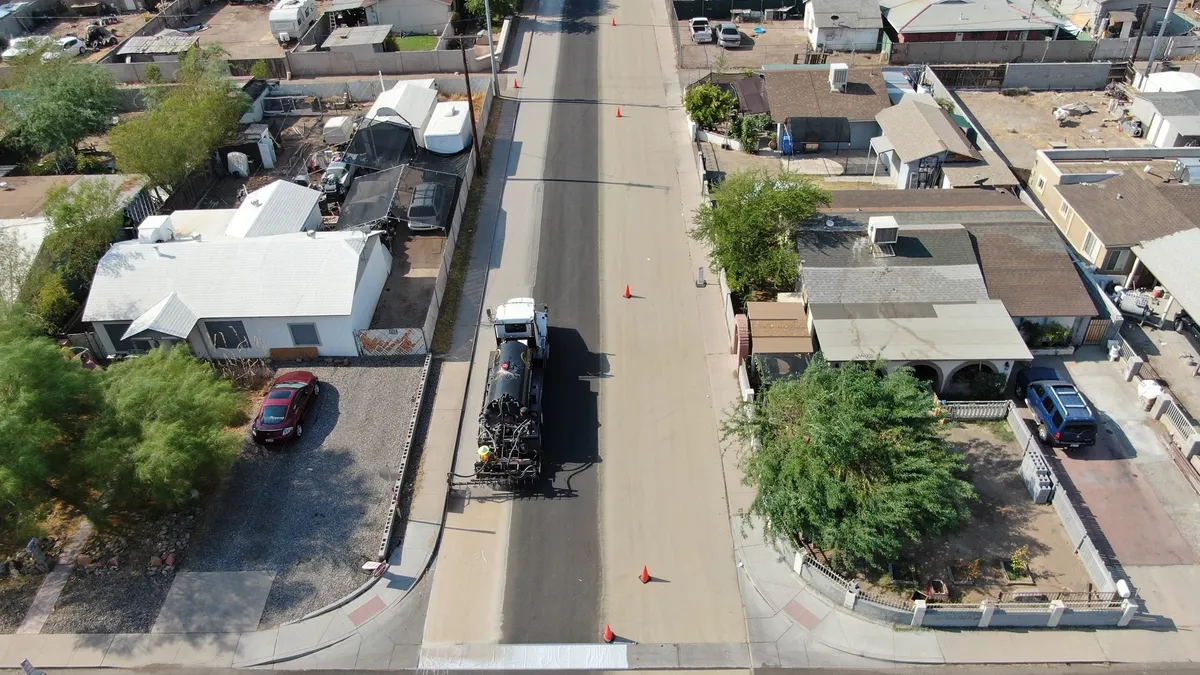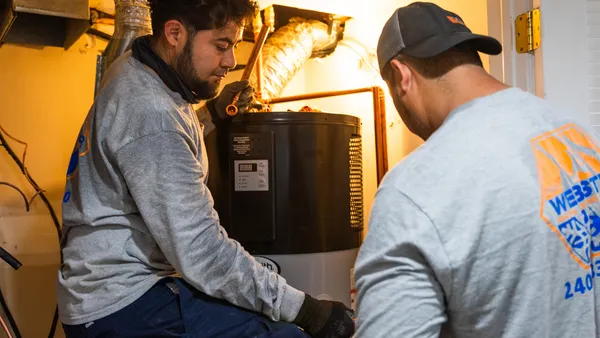Dive Brief:
- Philips Lighting recently announced an alliance with American Tower Corporation (ATC), a wireless infrastructure company, to develop and deploy smart poles for cities to install in streets, roadways and parking lots.
- The poles use LED lighting and come ready for mobile carriers to install 4G and 5G cell radio equipment. The smart poles were designed to look like regular streetlights, according to Philips Lighting officials. Bill McShane, Philips Connected City Experience national director told Smart Cities Dive, "The big thing is removing urban clutter and not changing the cities landscapes. Keeping the aesthetics of the neighborhood and yet providing all the services that the residents, businesses and visitors are demanding."
- The poles, which Philips Lighting debuted earlier this month at Mobile World Congress Americas, will likely be ready for orders by the second quarter of 2018, according to McShane.
Dive Insight:
Philips has dived into smart street lighting before. These poles are different, though, because they are not as limited in terms of real estate as the first-generation smart poles were. The poles which McShane says are currently deployed in Los Angeles and San Jose, CA, are equipped with LED lights and wireless capability. However, they're limited to space for just one mobile carrier; these new poles will have space for two, McShane said.
Combining ubiquitous street lighting with wireless capacity is a big step that cities can take to prepare for the direction that mobile devices and connectivity are headed. As more devices get added to the Internet of Things — including cars — faster wireless connections will become essential. It looks, right now, that 5G connections are future of faster connectivity, and Philips is making what could prove to be a very smart move by developing infrastructure that will allow cities to incorporate 5G carriers into their landscapes.
The fact that the cell equipment is inside the poles, rather than hung around them, is an added bonus. The smart poles would, once deployed, blend into already established cityscapes. That's a good thing for cities looking to get smarter, since design and placemaking are a key part of being a smart city. Clean design can have an added bonus for cities, too: A study has shown that well-designed and maintain spaces increase public trust in local government.










